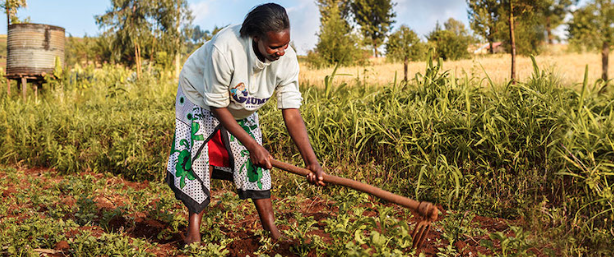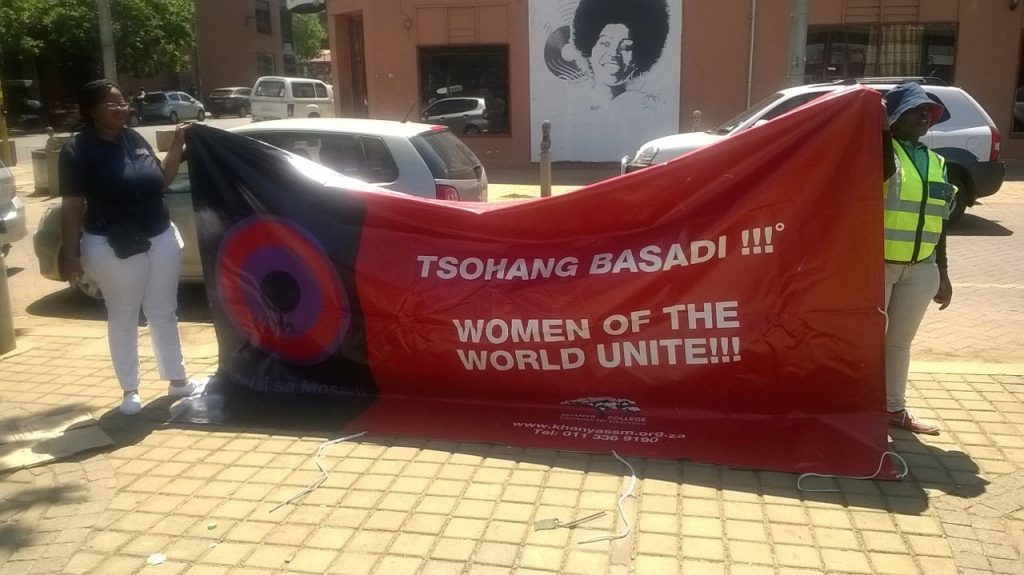In agriculture, women have been the driving force for thousands of years, as way of providing for their families. Some women have recently turned to farming to start their own businesses. However, the agricultural industry has often undermined the role women have played and still play in agriculture.
Women played an important role on farms many years ago and still do. In rural areas of South Africa agriculture is still the main way for women to feed their families and make a living. In urban areas not many women depend fully on agriculture but this is starting to change with the worsening socio-economic conditions for communities.
Sara Dladla from Lawley (south of Johannesburg) is one such woman who has invested her time in being in the fields in Lawley. She regards agricultural practice as very important because nowadays jobs are scarce and poverty is getting the best of almost every family. Dladla started her vegetable and brown beans business in Lawley as her way of sustaining her family and making sure that her children don’t go to bed hungry.
Dladla explained that she learned from her parents back in Limpopo about how to plant and looking after her crops as they used to work in the fields as a family. She took those lessons very seriously and still carries them with her. Those lessons have been put to good use as now Dladla is able to buy essential items needed in her house, and she is able to contribute to her daughter’s transport money to go to school. Her daughters help her in her business and the little profit she makes is able to keep her and family going.
Dladla added and said that “youngsters never understand the stress that comes with unemployment and the pressure and burden that a woman carries when the unemployment rate keeps rising and you hear your children saying they are hungry.”
According to Clara Sithole, she was inspired by her friends who used to make good profits from the crops they planted and sold. Sithole used to work in the field of agriculture in Lawley where she planted garlic, onions, spinach and corn. She said the biggest challenge was paying someone to help her clear the land. It cost from R500-R1000 to do this, depending on the portion of land. Another challenge was that the land was always full of water so some crops would die and the land had many rocks making it difficult to plant.
“I sold most of the crops. I also gave some away to other people close to me and some crops were used to help me and my family”, said Sithole.
Both these women were helped and are still assisted by their relatives, friends and family to start their businesses and with ploughing and harvesting showing that the solution to the communities’ food insecurity is and must be collective one.
This article was submitted on 10 June 2022. You may republish this article, so long as you credit the authors and Karibu! Online (www.Karibu.org.za), and do not change the text. Please include a link back to the original article.


 Download PDF
Download PDF
